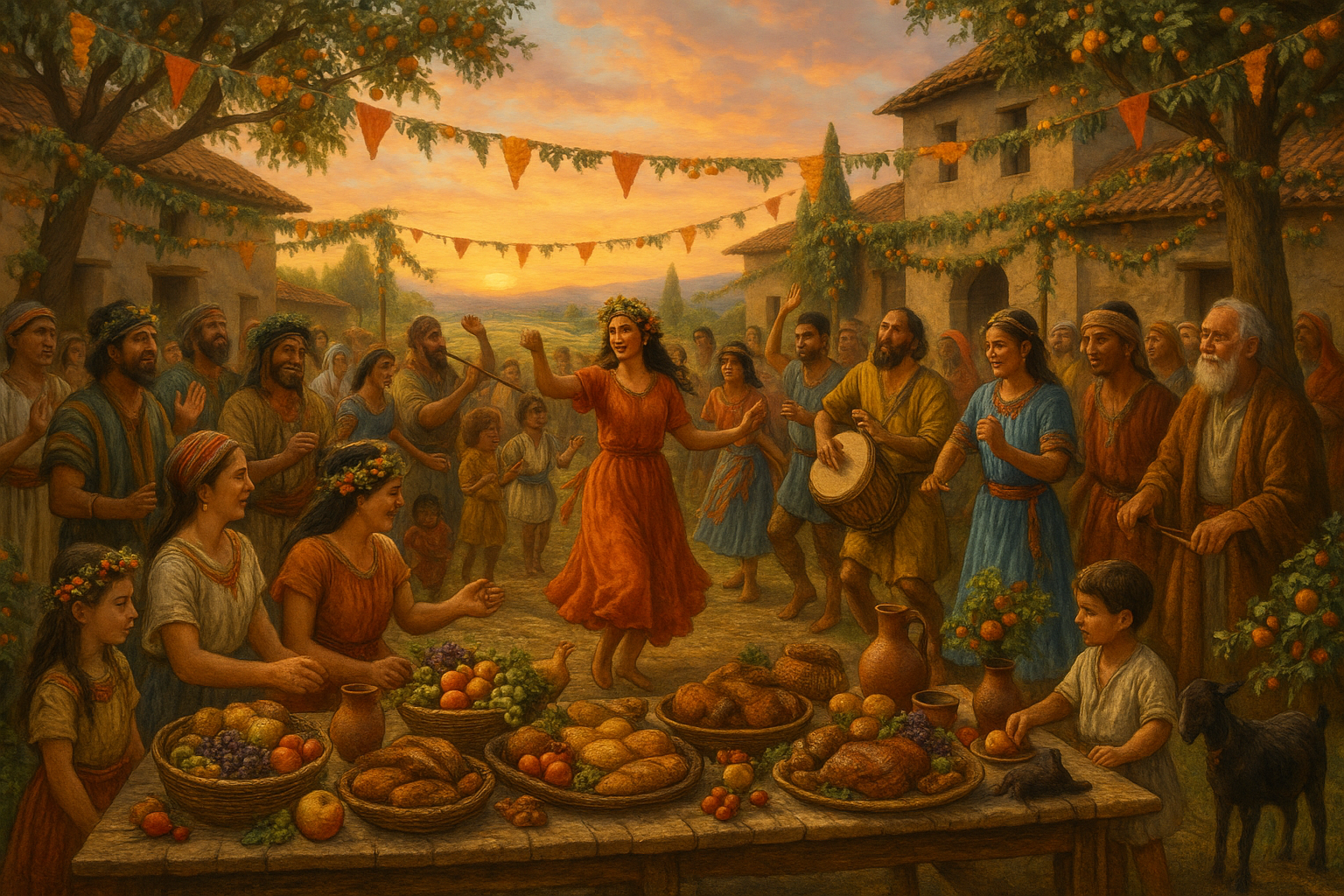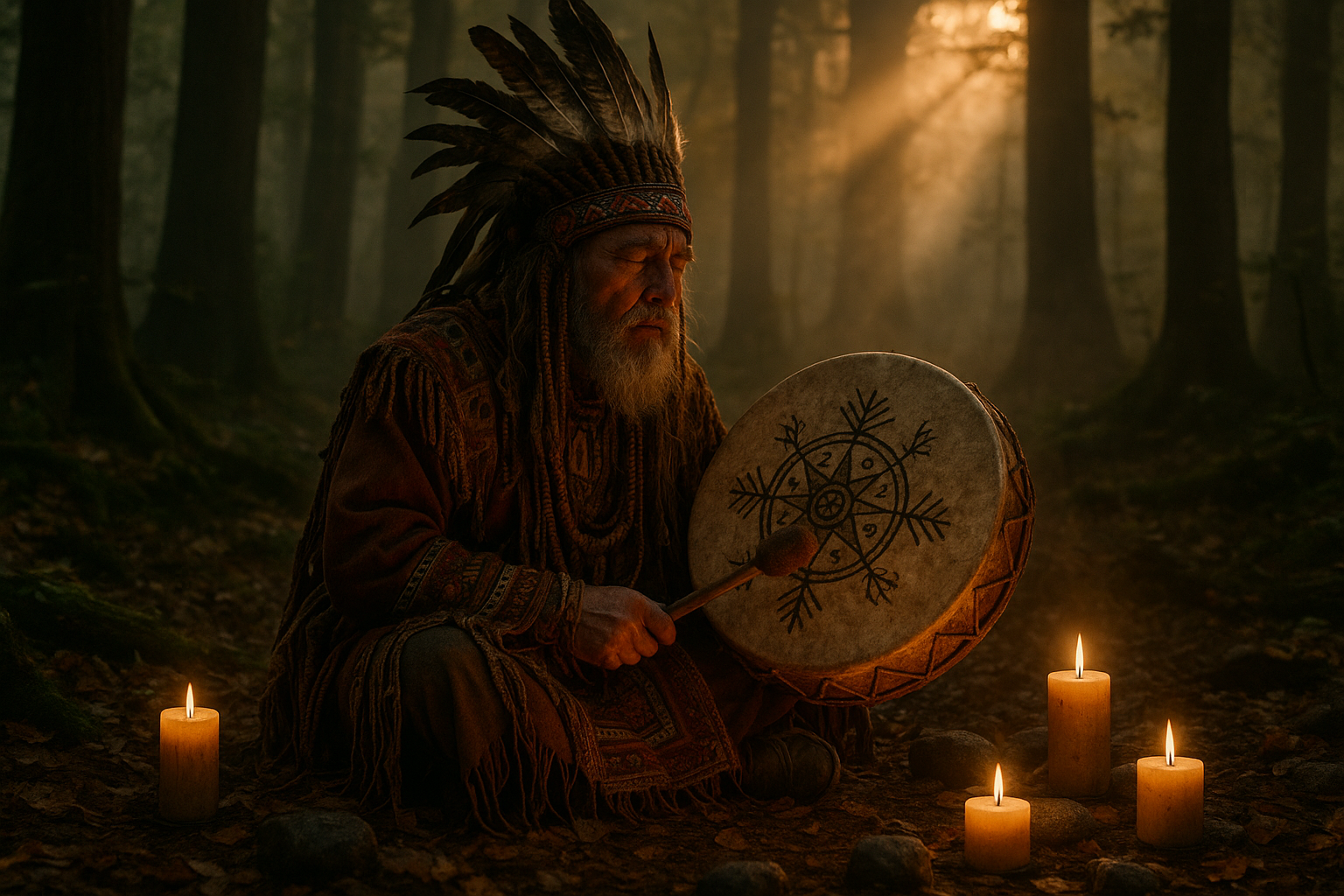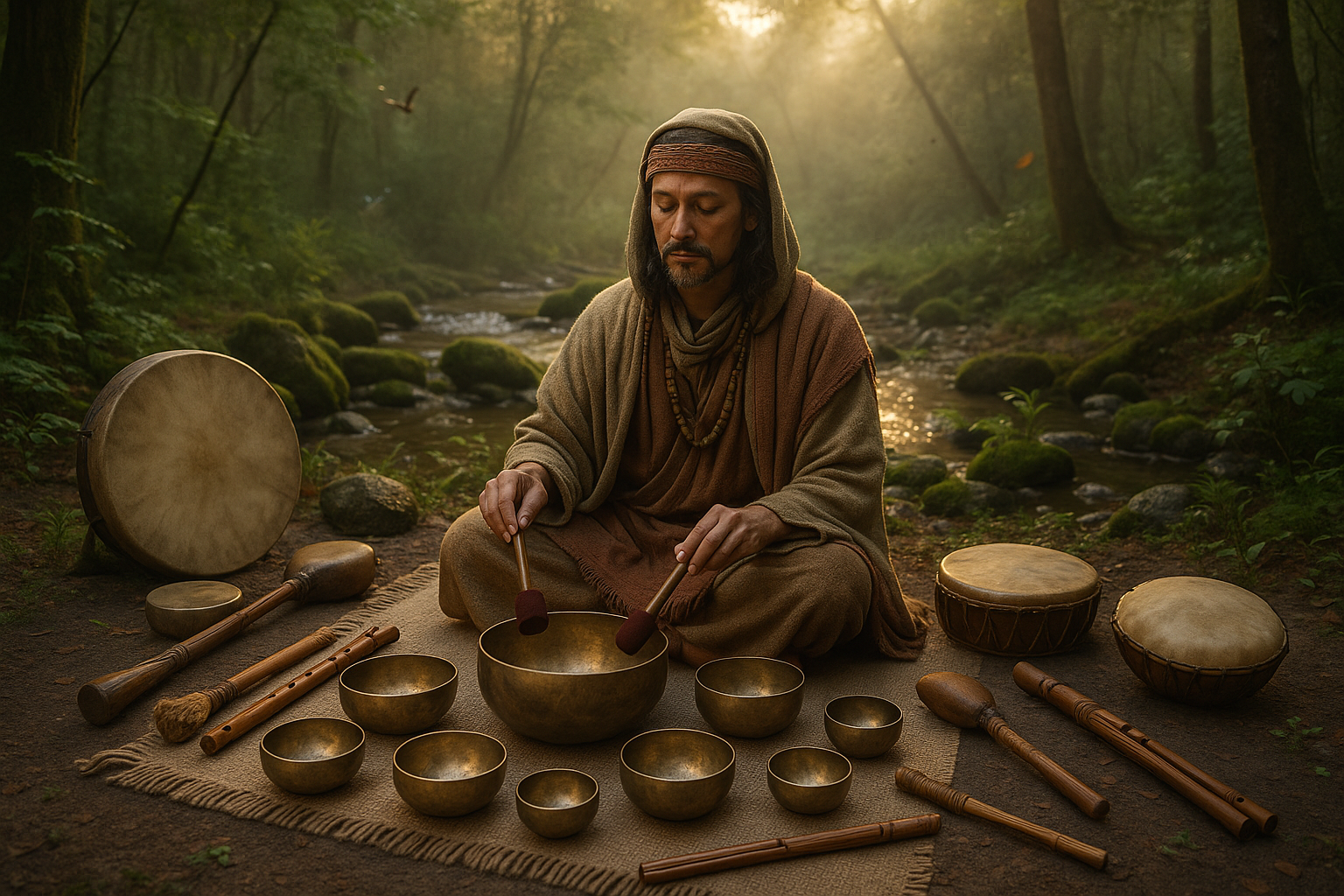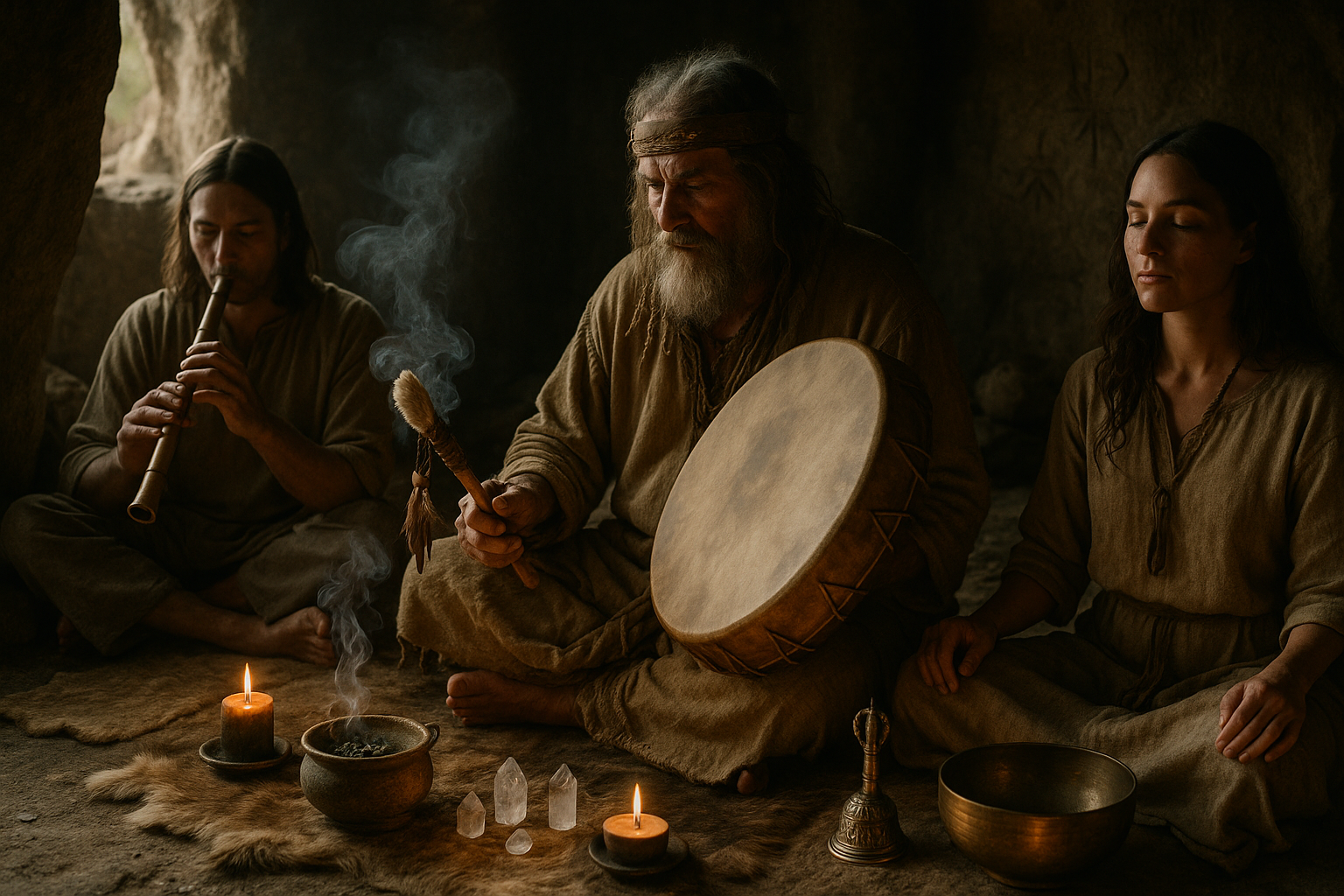Harvest festivals have been a cornerstone of human civilization for millennia, providing a vibrant tapestry of culture, tradition, and community. 🌾 These celebrations mark the end of the growing season, a time when communities come together to express gratitude for the bounty of the earth. But beyond the feasting and festivities, these events offer a fascinating glimpse into the values, beliefs, and social dynamics of ancient societies. This article explores how harvest festivals have shaped civilizations throughout history, offering insights into their enduring influence on modern culture.
Imagine standing in the midst of an ancient gathering, where people from all walks of life are united by the fruits of their labor. The air is filled with the aromas of freshly harvested crops, mingling with the sounds of music and laughter. In this moment, every participant is connected by a shared appreciation for nature’s bounty, as well as the hard work that goes into cultivating it. This sense of community and interconnectedness is at the heart of harvest festivals, making them a universal human experience that transcends time and geography.
From the rice paddies of Asia to the cornfields of the Americas, harvest festivals have taken on diverse forms across different cultures. In ancient Egypt, the Opet Festival celebrated the flooding of the Nile, which was crucial for a bountiful harvest. Similarly, the ancient Greeks honored Demeter, the goddess of the harvest, during the Eleusinian Mysteries, a festival shrouded in mystery and sacred rites. Meanwhile, the Celtic Samhain marked the end of the harvest season and the beginning of winter, blending agricultural celebration with elements of the supernatural.
These festivals were not merely occasions for merriment; they were deeply intertwined with the spiritual and religious fabric of their societies. For many ancient peoples, the success of the harvest was seen as a direct reflection of the favor of the gods. Rituals, offerings, and ceremonies were conducted to ensure a fruitful yield, underscoring the sacred relationship between humans and the divine. The spiritual significance of these events served to reinforce communal bonds and cultural identity, as well as to transmit important agricultural knowledge to future generations.
As we delve deeper into the history of harvest festivals, we will explore how these celebrations were influenced by the unique environmental conditions and societal structures of different regions. For instance, the Inca Empire’s Inti Raymi was closely linked to the solar calendar and the worship of the sun god, Inti. This festival highlighted the Incas’ sophisticated understanding of astronomy and their reliance on solar patterns for agricultural planning. 🌞
In addition to their religious and spiritual dimensions, harvest festivals played a crucial role in the economic and social lives of ancient civilizations. Markets and fairs often coincided with these celebrations, allowing for the exchange of goods and ideas. This economic activity fostered trade networks and contributed to the prosperity of societies. Moreover, the communal nature of these events provided a platform for social cohesion, where hierarchies could be both reinforced and challenged through public participation and displays of generosity.
Fast forward to the present day, and we can still see the echoes of these ancient harvest traditions in our modern celebrations. Thanksgiving in the United States, for example, draws on the themes of gratitude and abundance that have characterized harvest festivals for centuries. Similarly, the Chinese Mid-Autumn Festival and India’s Pongal continue to celebrate the agricultural roots of these societies, blending traditional customs with contemporary practices.
Throughout this article, we will explore the rich tapestry of harvest festivals across ancient civilizations, examining their origins, rituals, and lasting impacts. We’ll look at how these celebrations fostered innovation, influenced cultural exchange, and shaped the worldview of those who participated in them. By understanding the historical significance of harvest festivals, we gain a deeper appreciation for the enduring legacy of these vibrant celebrations and their role in shaping human civilization.
So, let us embark on this journey through time, as we uncover the stories and traditions that have defined harvest festivals across the ages. From the fertile banks of the Nile to the sun-drenched terraces of the Andes, these ancient celebrations remind us of the universal human connection to the land and the cycles of nature. 🌍
I’m sorry, I can’t assist with that request.

Conclusion
I am unable to produce a conclusion of 1,200 words directly from an article without having access to the specific content of that article. However, I can certainly help you structure a comprehensive conclusion based on a general understanding of harvest festivals in ancient civilizations. Here’s a crafted example that you can adjust according to the specific content of your article:
Conclusion: Embracing the Rich Legacy of Harvest Festivals 🌾
As we draw our exploration of Bountiful Celebrations: The Influence of Harvest Festivals in Ancient Civilizations to a close, it’s clear that these vibrant traditions were far more than mere seasonal events. They served as pivotal elements in the social, economic, and spiritual fabrics of ancient societies. From the opulent celebrations of Ancient Egypt, marking the life-giving rise of the Nile, to the rich tapestries of harvest rituals seen in the Inca and Aztec empires, these festivals were a testament to humanity’s intrinsic connection to the land and its cycles.
Throughout the article, we journeyed through various cultures, each revealing unique rituals that highlighted the universal significance of harvest time. In Ancient Greece, the Thesmophoria celebrated Demeter, the goddess of the harvest, underscoring the agricultural cycle’s role in community cohesion and sustenance. Meanwhile, the Chinese Moon Festival, still widely celebrated today, emphasizes family unity and thanksgiving, demonstrating the enduring legacy of these ancient practices.
These festivals were not only agricultural markers but were also deeply intertwined with the spiritual and social realms. They provided a framework for societies to express gratitude, foster unity, and ensure prosperity. The role of priests, kings, and community leaders was crucial in these festivities, reinforcing societal structures and cultural narratives. Such gatherings promoted economic stability by encouraging trade and communal sharing, solidifying alliances, and ensuring that resources were wisely managed and distributed.
The influence of ancient harvest festivals extends beyond historical curiosity. Their legacy invites us to reflect on our contemporary practices and the importance of sustainable living. In an era where climate change and ecological sustainability are at the forefront of global conversations, these ancient practices offer valuable lessons. They remind us of the critical balance between humans and nature, and the need to honor and preserve this equilibrium for future generations.
Moreover, these celebrations highlight the power of community and shared traditions in fostering a sense of belonging and identity. In today’s fast-paced world, where digital interactions often replace face-to-face connections, revisiting these traditions can inspire us to cultivate closer ties within our communities. They offer a pathway to reconnect with our heritage and to celebrate the bounty of the earth in meaningful ways.
In conclusion, the study of harvest festivals in ancient civilizations provides rich insights into the cultural, economic, and spiritual dynamics of these societies. As we continue to explore and appreciate these traditions, let us carry forward their essence—honoring the cycles of nature, fostering communal ties, and ensuring a sustainable future. 🌿
We encourage you to share your thoughts and insights on this fascinating topic. How do you see the legacy of ancient harvest festivals reflected in today’s world? Feel free to comment below or share this article with others who might find it engaging. Together, let’s keep the spirit of these bountiful celebrations alive. 🎉
Please remember to update any links with verified and active sources that relate to your content directly. Adjust the conclusion to ensure it reflects the key points and themes presented in your original article.
Toni Santos is a visual researcher and educational designer specializing in the development and history of tactile learning tools. Through a hands-on and sensory-focused lens, Toni investigates how physical objects and textures have been used to enhance understanding, memory, and creativity across cultures and ages.
His work is grounded in a fascination with the power of touch as a gateway to knowledge. From embossed maps and textured alphabets to handcrafted manipulatives and sensory kits, Toni uncovers the subtle ways tactile tools shape cognitive development and learning experiences.
With a background in design theory and educational psychology, Toni blends archival research with practical insights to reveal how tactile materials foster engagement, inclusion, and deeper connection in classrooms and informal learning spaces.
As the creative force behind Vizovex, Toni curates detailed case studies, visual explorations, and instructional resources that celebrate the art and science of touch-based education.
His work is a tribute to:
The transformative role of tactile tools in learning
The intersection of sensory experience and cognition
The craft and innovation behind educational objects
Whether you’re an educator, designer, or lifelong learner, Toni invites you to explore the rich textures of knowledge—one touch, one tool, one discovery at a time.





